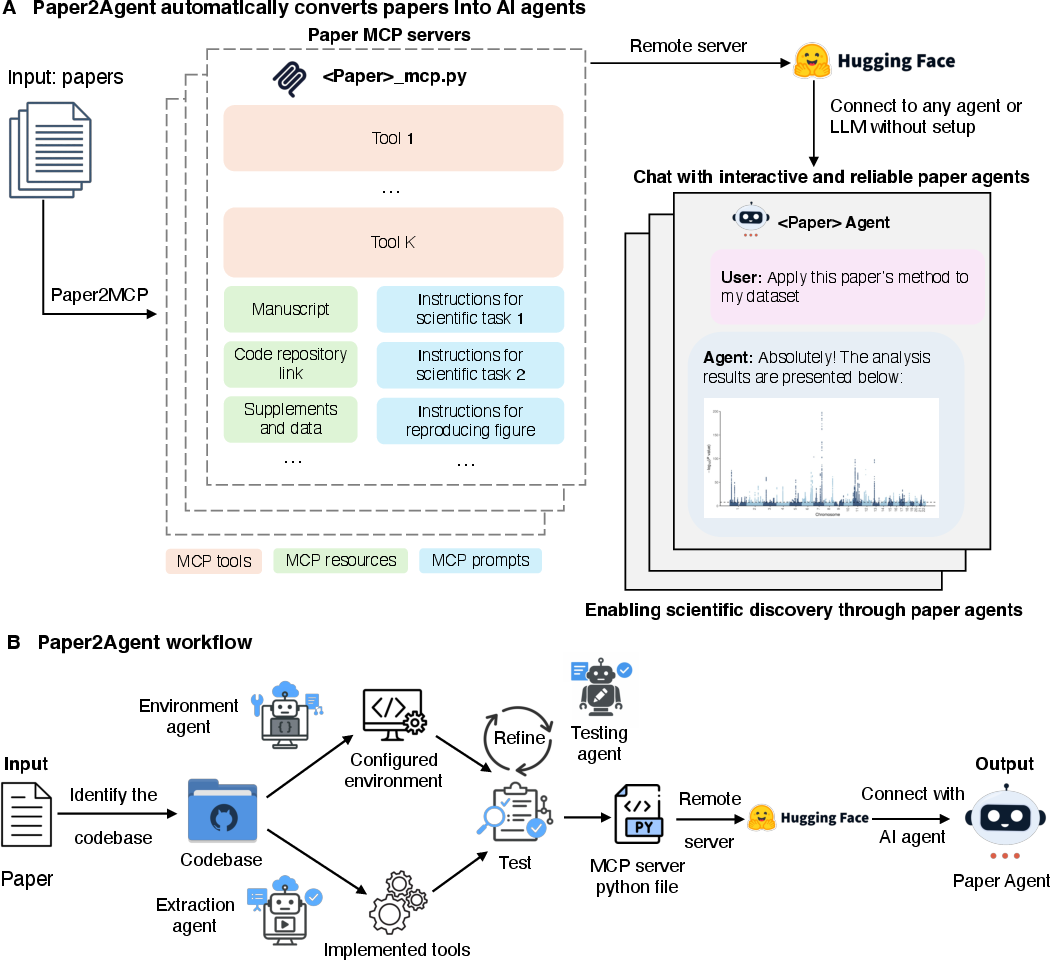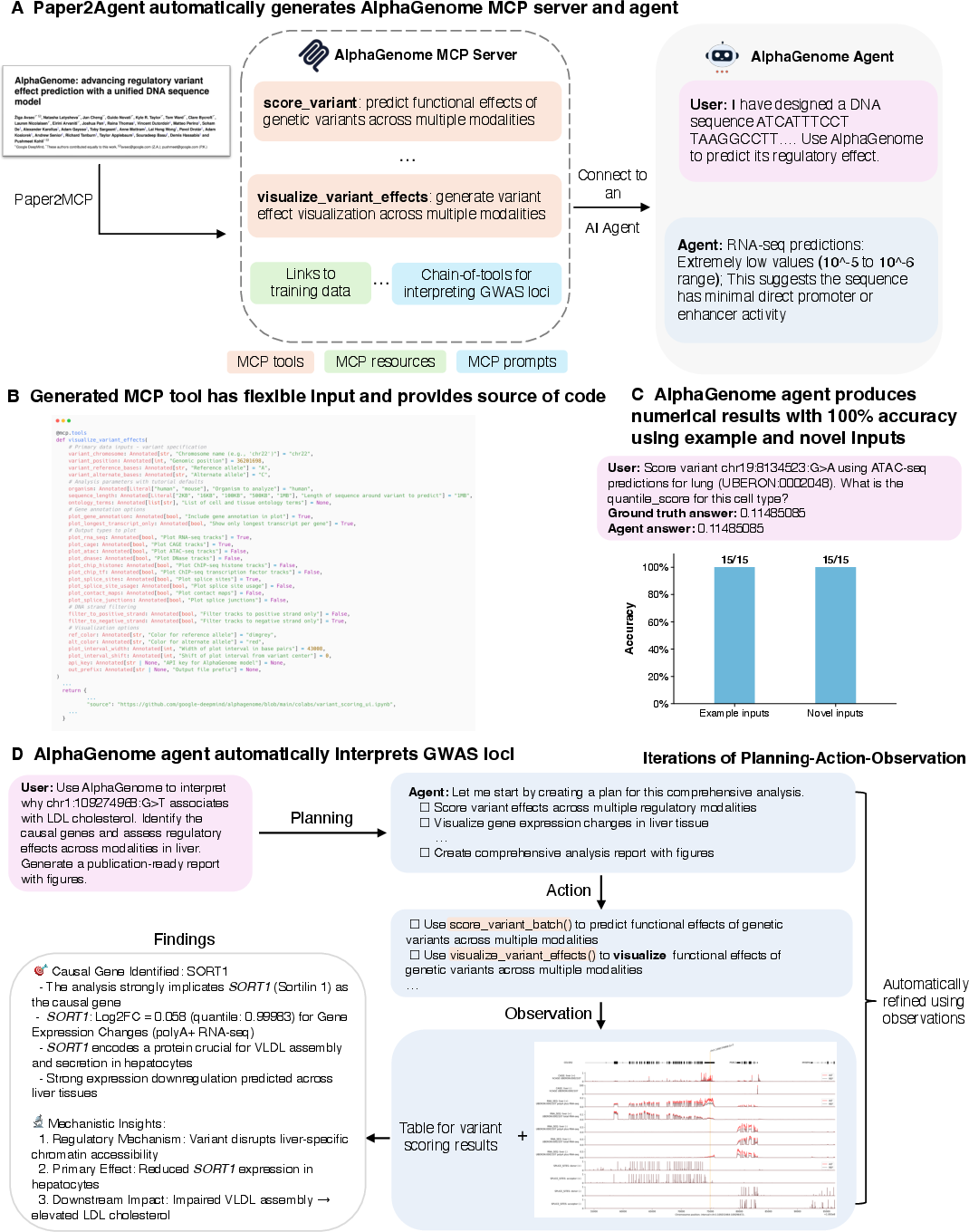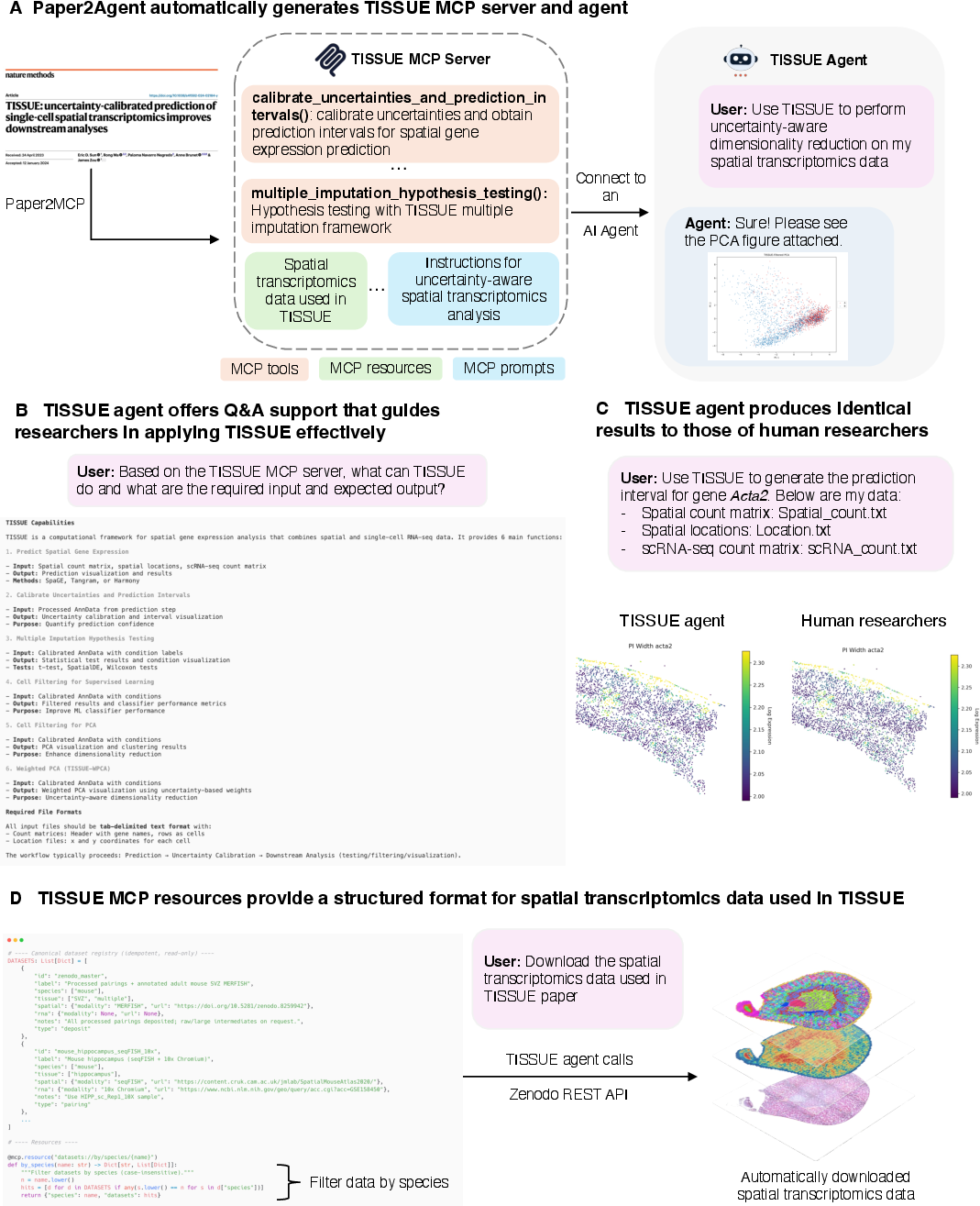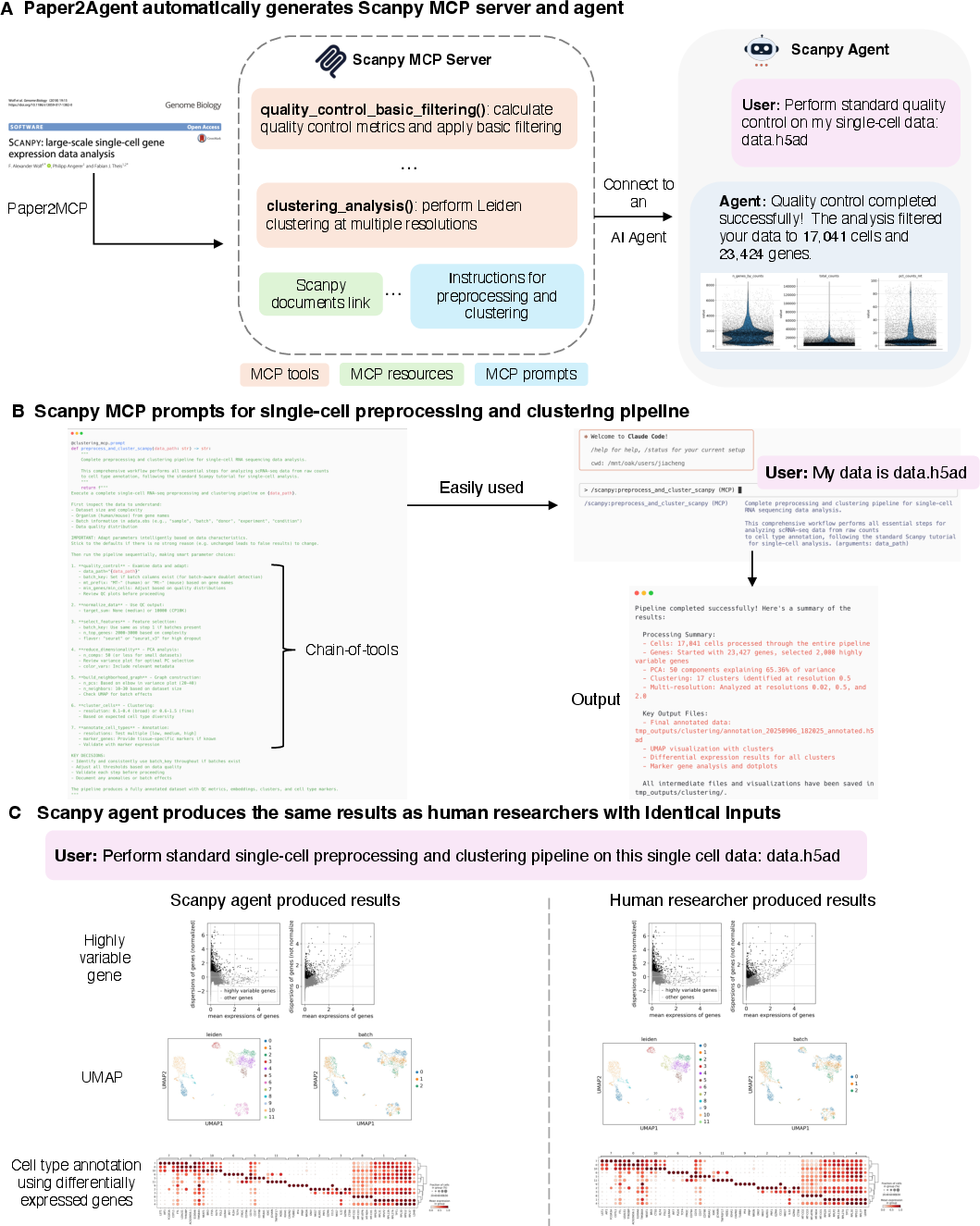- The paper proposes Paper2Agent, which converts research papers into interactive AI agents using a Model Context Protocol.
- Case studies in genomics, spatial transcriptomics, and single-cell analysis demonstrate the framework’s accuracy, reliability, and reproducibility.
- The framework democratizes access to advanced research methods by lowering technical barriers with automated, natural language tools.
Introduction
The paper "Paper2Agent: Reimagining Research Papers As Interactive and Reliable AI Agents" proposes a novel framework, Paper2Agent, which transforms traditional research papers into interactive AI agents. This framework converts static research outputs into dynamic systems that facilitate the dissemination, adaptation, and practical application of scientific findings. Paper2Agent leverages a Model Context Protocol (MCP) to enable natural language interactions with AI agents, enhancing accessibility and utility for researchers across various domains.
Paper2Agent Framework
Paper2Agent automates the conversion of research papers into AI agents by building MCP servers that encapsulate the paper's methods and analyses as tools, resources, and prompts (Figure 1). The framework extracts the codebase and sets up automated environments to ensure reproducibility. The resulting MCP servers allow AI agents to perform complex scientific tasks through natural language interaction, thus lowering technical barriers for users.

Figure 1: Overview of the Paper2Agent. (A) Paper2Agent turns research papers into interactive AI agents by building remote MCP servers with tools, resources, and prompts. Connecting an AI agent to the server creates a paper-specific agent for diverse tasks. (B) Workflow of Paper2Agent. It starts with codebase extraction and automated environment setup for reproducibility. Core analytical features are wrapped as MCP tools, then validated through iterative testing. The resulting MCP server is deployed remotely and integrated with an AI agent, enabling natural-language interaction with the paper's methods and analyses.
Case Studies: AlphaGenome, TISSUE, and Scanpy Agents
AlphaGenome Agent
The AlphaGenome case paper demonstrates the application of Paper2Agent to genomics. By generating 22 MCP tools, the framework created an agent capable of performing tasks such as variant scoring and genomic data interpretation (Figure 2). Benchmarking showed 100% accuracy in reproducing and extending the original paper's results, illustrating the agent's robustness and reliability.

Figure 2: Overview of the Paper2Agent-generated AlphaGenome agent. (A) Construction of the AlphaGenome MCP server and agent. (B) Exposed MCP tools and resources enabling variant scoring and visualization. (C) Benchmarking shows 100% accuracy on queries for reproduction and new tasks. (D) Automated planning and interpretation of GWAS loci through iterative planning-action-observation cycles by the AlphaGenome agent.
TISSUE Agent
The TISSUE agent highlights Paper2Agent's ability to transform spatial transcriptomics analyses into accessible computational workflows. The agent provides uncertainty-aware analysis and maintains reproducibility by matching human-generated results (Figure 3). The structured MCP resources facilitate dataset access, enabling seamless integration with external data repositories.

Figure 3: Overview of the Paper2Agent-generated TISSUE agent. (A) Construction of the TISSUE MCP server and agent. (B) Q&A support for uncertainty-aware spatial transcriptomics analysis. (C) Reproducibility confirmed by matching human researcher results. (D) Structured MCP resources enable standardized dataset access and automated downloads.
Scanpy Agent
The Scanpy agent exemplifies the utility of Paper2Agent in single-cell data preprocessing. By encoding a standardized preprocessing and clustering pipeline, the agent reproduces human researcher results from simple dataset inputs (Figure 4). This case demonstrates the efficacy of MCP prompts in guiding the execution of complex analytical workflows.

Figure 4: Overview of the Paper2Agent-generated Scanpy agent. (A) Construction of the Scanpy MCP server and agent. (B) MCP prompts encode a standardized single-cell preprocessing and clustering pipeline. (C) Agent reproduces human researcher results, requiring only the dataset path as input.
Discussion
Paper2Agent represents a significant advancement in transforming research communication from passive dissemination to interactive collaboration. By leveraging AI agents, Paper2Agent lowers the technical barriers to applying complex methods, thus democratizing access to advanced scientific knowledge. The modular MCP framework can be extended to aggregate multiple related papers, potentially leading to flexible, coherent interfaces that accommodate broader scientific contexts.
The framework also introduces a metric for reproducibility: the extent to which a paper can be transformed into an agent reflects its methodological rigor and transparency. As scientific publishing evolves, the expectation for contributions to be "agentifiable" may become a new standard, akin to requirements for data and code availability.
Conclusion
Paper2Agent offers a transformative approach to scientific publishing by converting research papers into interactive AI agents. This framework enhances the accessibility and applicability of scientific methods across disciplines, fostering a new paradigm of knowledge dissemination and collaboration. Future developments may see advanced integrations where scientific agents collaborate, further accelerating interdisciplinary research and discovery.



